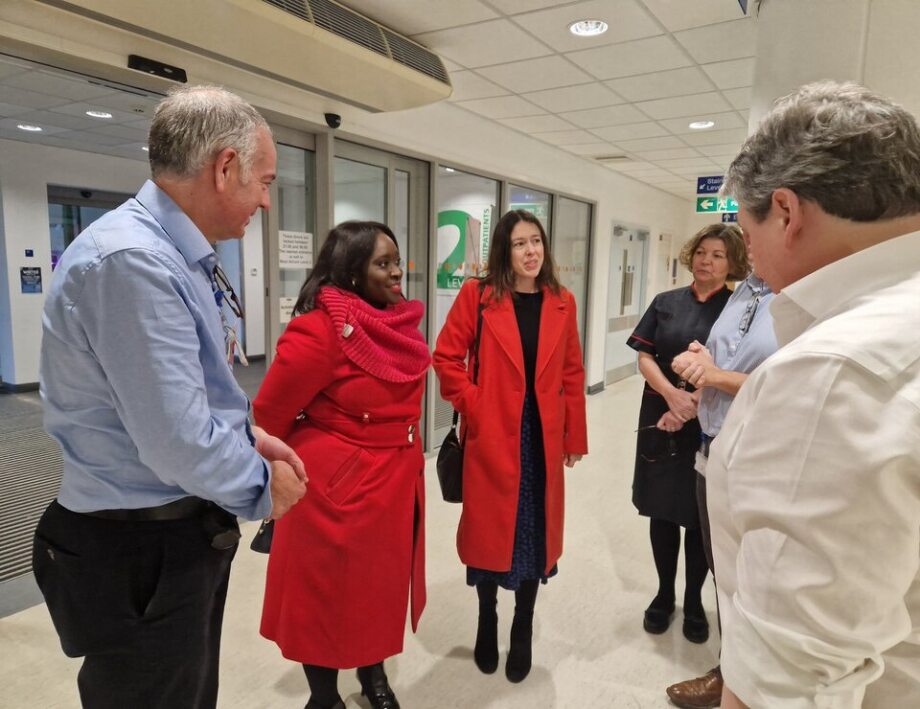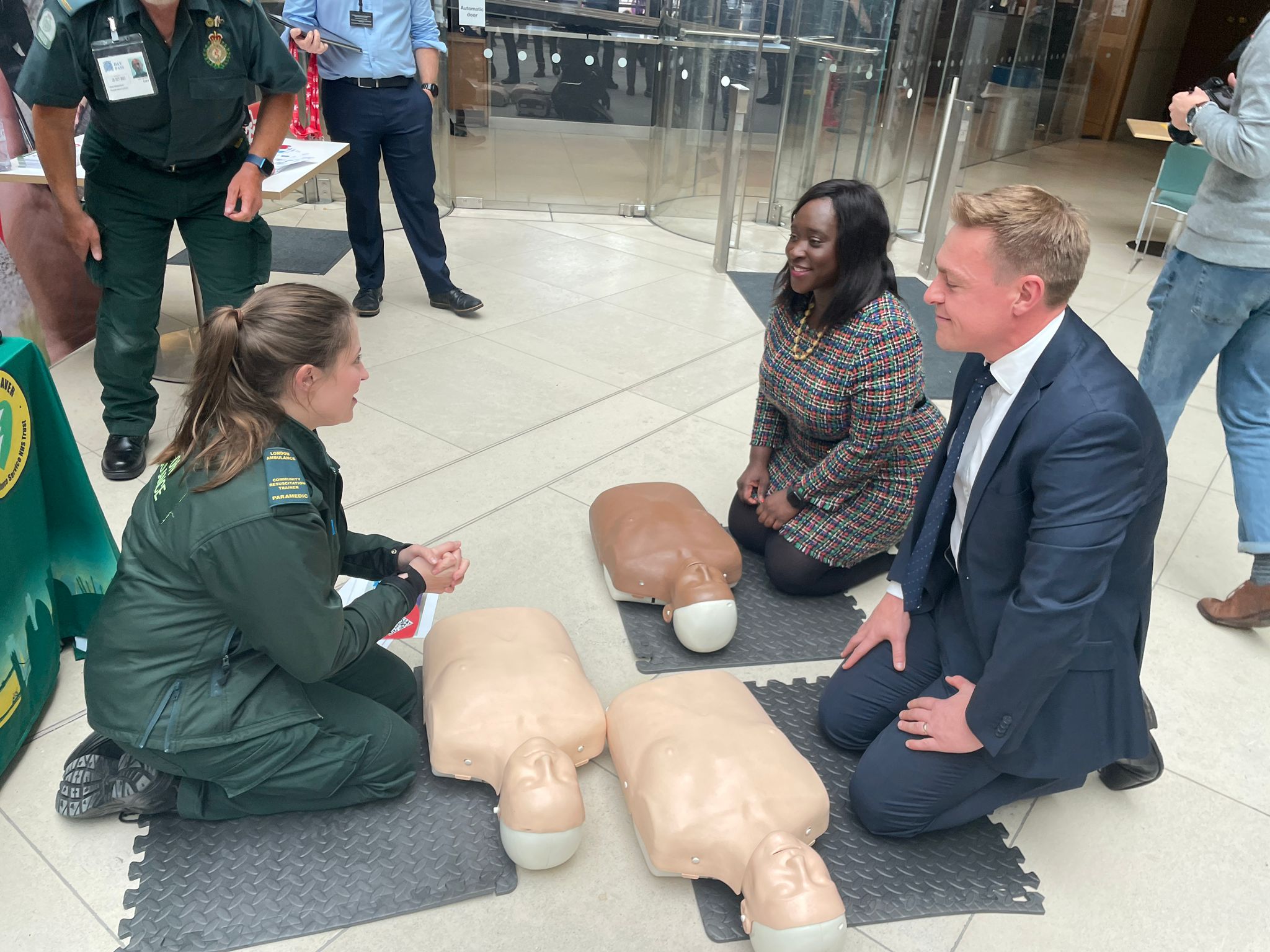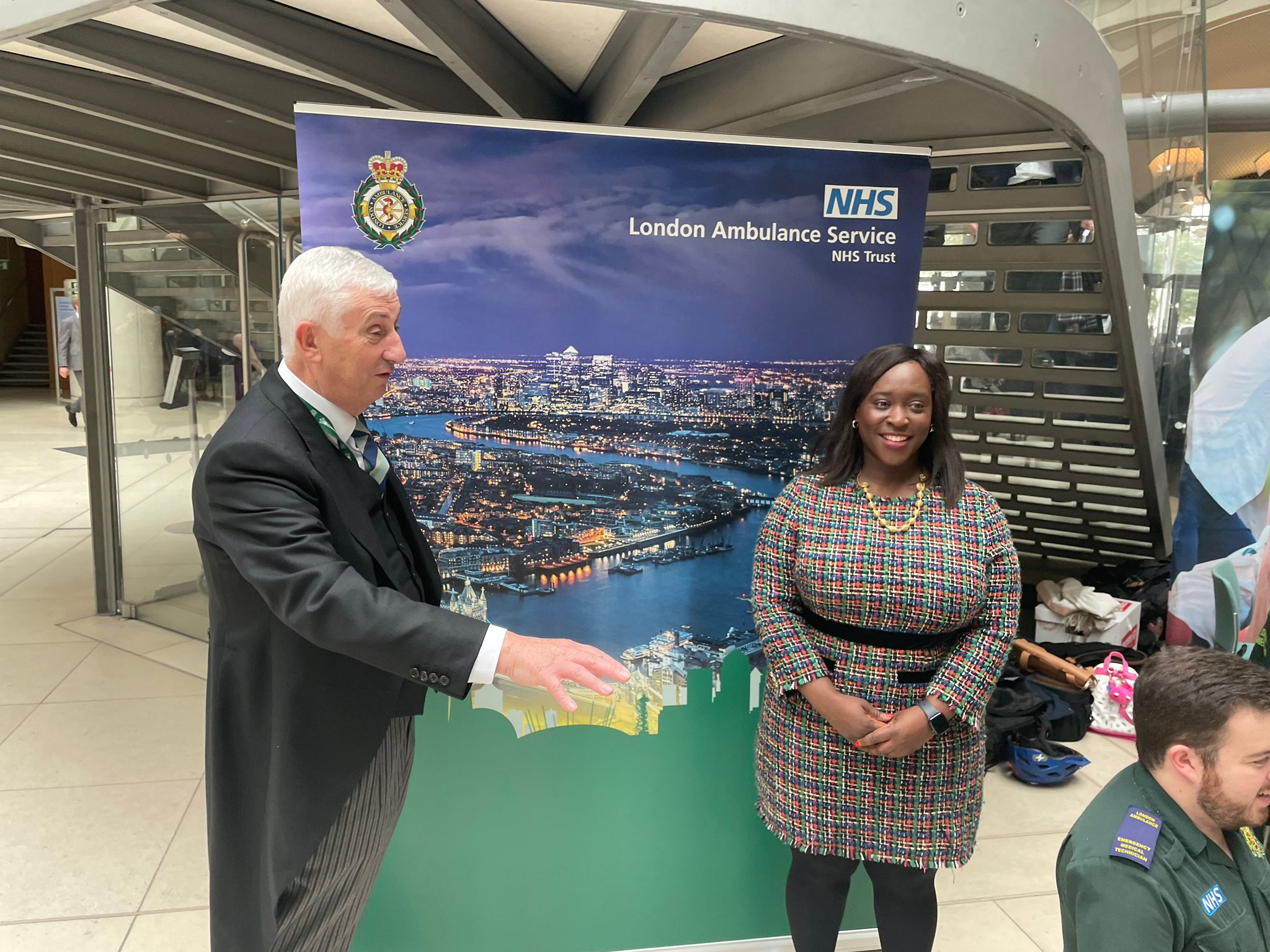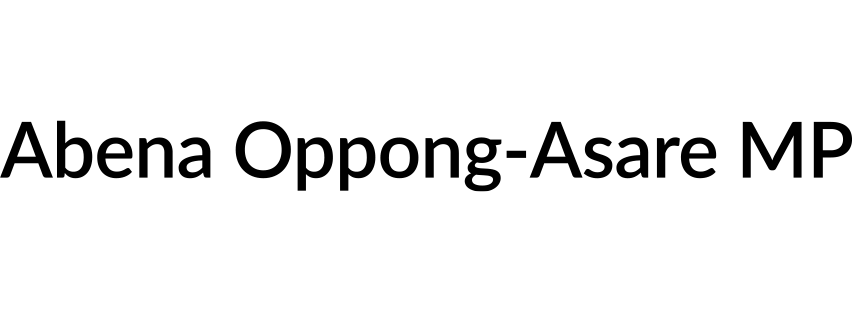Visit to Greenwich Mental Health Hub with Mind
It was great to visit the Plumstead Health Centre this month and meet all the lovely and hardworking staff at South East London Mind. You can find out more about their work here.
It was great to visit the Plumstead Health Centre this month and meet all the lovely and hardworking staff at South East London Mind. You can find out more about their work here.
Many thanks to NHS Confederation for inviting me to speak to their annual Mental Health Conference in Leeds on the urgent need to invest in our mental health services.
It was also important to learn about the innovative approaches taken at Leeds Synergi to tackle ethnic inequalities in mental health.


This month, I was pleased to speak with health professionals and charities from One Voice to discuss collaboration on key issues including pregnancy, maternity, neonatal care, and early years services.
I was joined by representatives from the Royal College of Midwives, the Royal College Obstetricians and Gynaecologists, Sands and many other important organisations. I found hearing suggestions on how to improve the accessibility and quality of care for mothers particularly interesting and I look forward to continuing this important conversation.
This month, I had the opportunity to give the Keynote speech at the Black Maternal Health Conference hosted by the Motherhood Group.
In my speech, I spoke about how we can and must improve Black maternal health. Most importantly, I spoke about the shockingly high rates of maternal mortality and the stark disparities that mean Black and Asian mothers are much more likely to die in pregnancy or childbirth.
I was also pleased to join the Shadow Women and Equalities Secretary, Anneliese Dodds MP, in a visit to the Motherhood Group’s community hub to hear from new mothers directly. The stories we heard were truly shocking. Some mothers are too terrified to have another baby and others are just happy to be alive.
Unfortunately, earlier this year, we found out that the Government’s Maternity Disparities Taskforce met just twice last year. In contrast, I’m pleased that Labour have committed to set targets to close the maternal mortality gap.
You can read more about our plans here.
I was honoured to be invited to deliver a keynote speech at UNISON’s National Women’s Conference, where the pivotal theme centred on women’s health in the workplace.
Throughout the conference, we engaged in profound discussions surrounding the specific needs of women employees, particularly concerning conditions like endometriosis, menopause, and menstruation. It was evident that when these crucial aspects of women’s health are overlooked by employers, it significantly impacts workplace well-being.
One of the significant motions passed during the conference was aimed at enhancing maternity care for Black women, who unfortunately face heightened risks of miscarriage or maternal mortality. This issue underscores the urgent need for proactive measures to address healthcare disparities and ensure equitable access to quality care for all women.
During my address, I shed light on the systemic racism that women of colour encounter when seeking healthcare services. Additionally, I emphasised the imperative for employers to recognise and accommodate menopause as a crucial aspect of women’s health in the workplace.
Women’s health demands prioritisation at all levels of governance. Unfortunately, far too often, the needs of women have been side-lined. However, I firmly believe that it’s time for a transformative shift.
In my speech, I articulated Labour’s unwavering commitment to reinvigorating the NHS to make it truly inclusive and responsive to the diverse health needs of women. Our vision entails not only addressing existing inequities but also eradicating systemic racism within healthcare systems and instituting frameworks that prioritise women’s health needs.
Now more than ever, we must rally behind the fundamental principle of a NHS that is universally accessible and free at the point of use, ensuring that every individual, regardless of gender or background, receives the care they deserve.
You can read more about the conference and my speech here and read about an interview I did with UNISON here.
Let’s continue our collective efforts to champion women’s health and build a future where every woman can thrive.
It was fantastic to visit the London South East London Colleges Bexley campus this month. I had an insightful discussion with the CEO and Student Union President, as well as a tour of the college’s impressive facilities.
It is so important that we hear directly from young people on their experiences with mental health, which is why I was very pleased to have been able to have a roundtable discussion with students from the College.
We know that our child and adolescent mental health services are in a severe state of crisis, with the number of children and young people undergoing treatment or waiting to start care having reached new records. That’s why Labour will recruit thousands more mental health staff to cut waiting lists and ensure more people can access treatment alongside creating an open-access mental health hub for children and young people in every community.
My visit only reaffirms my commitment to championing our colleges, empowering our teachers, and providing every student with the tools they need to succeed. I look forward to working with the College in future to support the talents and aspirations of the young people in Erith and Thamesmead.
We know that so much more needs to be done to tackle NHS waiting times and to address the mental health crisis faced by our youth.
This month, I was pleased to join the Labour candidate for Norwich North, Alice Macdonald as we met the hard-working staff at Norfolk and Norwich University Hospital and also the fantastic team at the Risebrow Mental Health hub in Norwich City centre.
It was really important to hear all the pressing issues they are facing and I was also pleased to share Labour’s plans on how we would do things differently.


After my Parliamentary debate on increasing public access to Defibrillators in July, awareness is increasing, and more training is now becoming available.
It was great to have so many members of Parliament and staff learning about this lifesaving training and these devices. I hope that we can continue to spread the message of awareness around the whole country and save lives as a result.
This event comes after the good news in September about the new defibrillator at Lesnes Abbey Lodge. A big thank you to Lesnes Abbey Friends who worked so hard to make that happen and for inviting me to see the new device.
Thanks especially to the Speaker, Lindsay Hoyle for hosting the event in Parliament and also to the London Ambulance Service for providing the training.
Let’s continue to push for progress.


I was delighted to pop in and see the new defibrillator at Lesnes Abbey Lodge this month. It was great to be invited by Lesnes Abbey Friends to meet them and hear how they raised an incredible £2,000, with support from local organisations, to install this life saving device.
You may be aware that increasing access to and awareness of defibrillators is an issue I’m incredibly passionate about. In July this year, I organised a Westminster Hall debate on this issue and challenged the Government to do more where possible on public access to defibrillators. In the debate, I said:
“Defibrillators represent an incredible technical advance. They are lightweight, easy to use and designed only to help and not harm the patient. The issue is not about their design but their distribution and public awareness of what they are and how to use them.”
It was great therefore to join Lesnes Abbey Friends as they celebrated adding this important device to our community.
I also got the opportunity to join Lesnes Abbey’s first ever Woodland Festival. This event involved a jam-packed day of events and activities and was a great celebration of Lesnes Abbey and Woods.
I hope you will be pleased to know that I have recently accepted the position of Shadow Minister for Women’s Health and Mental Health. This is such an important role and these are issues that I’m really passionate about.
My main role as a Shadow Minister is scrutiny. I am committed to ensuring that the government is held accountable in legislative procedures and in ministerial conduct. This might include exploring government policy, finding its faults, and critiquing it. That being said, as an opposition minister I am part of a government in waiting. This means that I must ensure that Labour is ready for government in case of electoral victory, and ready to deliver our mission to build an NHS Fit for the Future.
I am pleased to say that Labour is committed to getting waiting lists down and getting people treated on time. We have a 10-year plan for change and modernisation and this will include one of the biggest expansions of the NHS workforce in history. But more than that, we plan to put individual care and mental health treatment at the heart of our mission. An issue that has for too long been in the shadows.
With Labour, more care will be delivered on your doorstep, out of the hospital and in the community. We will focus on prevention and a move towards transformational new technologies.
In my new role, I will be working with various charities and stakeholders, listening to experts in Women’s Health and Mental Health, and considering how Labour will do things differently. However, I will also be speaking to those working in our health and care sectors and the patients receiving care.
I’d love to see Women’s Health and Mental Health services transformed into something that the British people can be truly proud of. I want everybody to receive the support that they deserve, delivered as quickly and efficiently as possible.
It is Labour who has the plan and the mission to build a NHS Fit for the Future and there for you when you need it. I encourage you to take a quick look at Labour’s plans for health services, which you can read here: Building an NHS fit for the future.



Through my work I am determined to work with local residents, community groups, businesses and public services to ensure that Erith and Thamesmead is put on the map and we get a fair deal for our community.
E-mail: abena.oppongasare.mp@parliament.uk
Twitter: @abenaopp
Facebook: Abena-Oppong-Asare-MP
